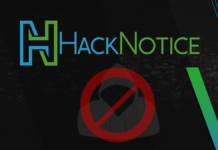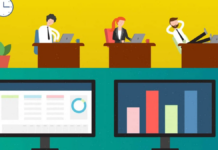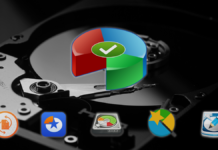
Content:
This entry by Zen Archer gives an up-close glimpse of some of the current concerns associated with Facebook privacy. A special focus here is on the Timeline profile’s privacy-infringing peculiarities and user tracking implementation.
![]() Facebook is different now. A lot of people say it is a pivot, going from a private social network into whatever the hell it is now.
Facebook is different now. A lot of people say it is a pivot, going from a private social network into whatever the hell it is now.
And this is really the pivot that Facebook is struggling with because they got to fame being just an awesome private social network. It is pretty cool when you have a good network of people. But that’s because it works as a private network, and this is a switch to a public network, whether or not it is a good thing.
Having significant impact onto our life, Facebook constantly introduces new features, changes privacy settings and offers tons of apps. All those huge amounts of controls are a little bit scary and weird. Facebook keeps people readjusting to life all the time, moving too fast and too far in their efforts, and the new Timeline is a good example of that.
Before discussing Timeline and digging deeper into privacy concerns, let’s touch upon things which look funny at first sight. Have you heard all the rumors about Facebook going to a membership-based model, and all those stupid statuses: “If you copy and paste this message, Mark Zukerberg will let you keep it for free?” Somebody was really awesome trolling on Reddit: “To troll your friends make this your profile picture”, and then it is: “To view this picture, you need a Facebook Gold account”. It’s like: “If we get enough people doing this, we can make people think that they have to pay for Facebook”.
Though the whole idea of paying for Facebook may seem funny, as no one is going to pay for Facebook, and no one needs to pay for Facebook, but you know what, you are already paying for Facebook. All the data you are putting in makes them 2-3 Billion dollars a year. Yes, you are not paying in actual dollars but don’t pretend that you are not paying, you are! You and your privacy are suffering for all the features you get. We all really need to pay more attention to what’s going on out there on Facebook.
Facebook Timeline profile
The new Timeline came out. Great! Timeline is supposed to be the story of your life, from when you were born up until present day, and you can add information there: your achievements, pictures, events.

They have done some massive stuff with Timeline. If in 300-400 years Timeline could be still available, and if you could go and look back at a famous person’s life and dig through like a historian or biographer, the amount of things you can learn about somebody’s life is huge. And it is really so, because when Timeline came in, people found a lot of their stuff was automatically there. You suddenly realize that all of the stuff that you thought was private and hidden was not actually private and hidden, it was available for the public to see. Information gets hidden based on its importance. But eventually it does not go away, it just gets hidden, you just have to click the button and it opens up again.
Actually, everything depends on how public you want to be. If you are a celebrity, you should be happy that everything Facebook knows about you is made in an easy way to view.
But what about those people who have this real hesitation about sharing things, and sharing things online? Of course they can go and set all these things to be private. Go to the side, there’s a star and a pencil symbols there, either click on a star and make a specific story a big thing, important event, or click on a pencil and hide that story. You can go through and control what stories are shown and what stories are not. You can, but that’s a lot of work. You actually have to go though and do all of it yourself. It’s more like Facebook: “Hey, here is everything we know about you, now go through”. Why is it another way around, why do you need to go and remove stuff, why isn’t it that you go and add stuff?
You might want to go in there and set the defaults to be that it is only shared with your inner circle of friends or people you can trust, people you want to know more about you. And then you can decide what goes in that Timeline.
Another example here is the places. Timeline can map out everywhere you have been to according to the places you have checked in or your friends have checked you in. Somebody can check you in, even if you were not actually there, or even if you do not want your friends to know you were there. In this case, you have to go and uncheck that person to be able to check you in. This is the primary issue with Facebook, they decide that everything should be public first, and then you have to remove stuff. Seems they are following Twitter, because everything in Twitter is public first, always, this is how Twitter works, that is where the value of Twitter is. But that is because Twitter is a public service and Facebook has always been more about privacy.
User tracking on Facebook
There is a lot to be thinking about when it comes to privacy on Facebook. A lot of privacy concerns have to do with reports that Facebook is tracking logged out users.
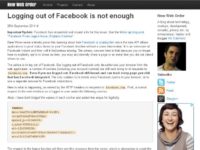
So, he was concerned and he wrote in his blog about it, and this started with that. Two congressmen got involved and they were asking the Federal Trade Commission to investigate accusations.
At first, Facebook’s reply was: “We don’t track people when they are not logged in”. Of course, Facebook does not want you to log out because they want to be able to track you. Social media require sharing, and the more sharing that is available the better it goes, the more company gets, and also the more information they have that they can sell to advertisers, or give to advertisers in order to target you.
But then, when it was proven that their cookies were doing that, Facebook said: “Oh, okay, we will stop that, and we will fix that”. Facebook’s whole attitude about privacy seems to be: “Let us just do it until we get caught”. And then, when they get caught, they say: “Oops, we are sorry, we did not realize”, or: “Yes, we did that, but our intention was not bad”. And so, those privacy issues still exist. It is kind of: “Let us go ahead and do that and wait till we get caught and apologize for it and do it again”. And on public, Facebook guys have repeatedly said: “Don’t worry, it’s fine, trust us, there is nothing wrong with this”.
 They have even set up a little program where they would like you to tell them when you catch them: “Oh, this is doing this”, so that they can fix it before it becomes a huge media problem and they have people like congressmen asking governing parties to take a hard look at what they are doing.
They have even set up a little program where they would like you to tell them when you catch them: “Oh, this is doing this”, so that they can fix it before it becomes a huge media problem and they have people like congressmen asking governing parties to take a hard look at what they are doing.
So, the way this tracking works is – even if you are logged out of your Facebook, there are certain cookies that are stored by your browser, that allow Facebook to still track the websites that you are going to, and then use that for marketing. You might think that you are not actually logged into Facebook and that they cannot track you, but if you have used a particular app like the Timeline app, they can.
Data sharing on Facebook – is it really up to you?
 You have these ‘Like’ buttons on every page on the web. Every time that button is called up, that is actually Facebook, that is not just an element on the page – that element comes from Facebook. So just by having that element on the page, it sends data back to Facebook. And not only is it sending data back to Facebook, but it also sends data about the one who is viewing the page with the button. And so with the help of those cookies, they know a lot about the machine and the person who is sending the ‘Like’ button.
You have these ‘Like’ buttons on every page on the web. Every time that button is called up, that is actually Facebook, that is not just an element on the page – that element comes from Facebook. So just by having that element on the page, it sends data back to Facebook. And not only is it sending data back to Facebook, but it also sends data about the one who is viewing the page with the button. And so with the help of those cookies, they know a lot about the machine and the person who is sending the ‘Like’ button.
What is important, of course, as a service it is something you opt in to. Facebook does a lot of stuff that you automatically opt in to, but regardless you are still logged in. When you log out of their service, you should have opted out from any relationship with Facebook at that time, they should not do anything with you even if you visit a website with the ‘Like’ button.
For now, simple advice is to delete cookies every time you log out of the website. Alternatively, you can use something like ‘AdBlock Plus’ software.
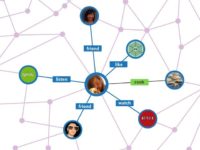
Is there a need for such intrusiveness to everything that you do? Will we be offered to share what we ate, touched and heard in the future? What was wrong with just copying and pasting a link, or what was wrong with the ‘Like’ button?
It is clear that new features can facilitate much more sharing and so much more watching and buying. It just depends on how much control you get over what is being shared.
It is interesting how successful and profitable new features are to Facebook, as so many people say, for example, that the big part of ‘Spotify’ music streaming feels like noise popping up all the time. And the default setting of ‘friends only’ means all of your friends, even maybe pregnant classmates know that you listen to ‘Cannibal Corpse’, death metal band.
It makes sense if you want to be a network that is all about being public, but Facebook has never been about being public. It makes Facebook a network for celebrities or other public people.
Is that too far when it is at the stage when almost 900 million Facebook users do not even have to click a button? Most people are not culturally ready for that, we do not quite understand why we are doing it.
And Facebook say if somebody does want to share but not always, not everything and not with everybody – he can always tweak his settings. Yes, we can, but they do not always make things easy. And that is what the next couple of paragraphs are about.
Adjusting Facebook privacy controls
They really make it difficult. While tech savvy people sometimes cannot understand these settings, how can the rest of the people do? They could have made it simple. Facebook actually has almost 900 million users, even if just 5% struggle with Facebook controls, it makes 45 million people – whole population of a country like Spain. Millions of people are possibly clicking and sharing stuff unintentionally.
Take for example my mother, she signed up to Facebook and she really tries hard with new technology, but Facebook just confuses her. Enormous amount of time I have been called to help her use Facebook because she is worried when she posts stuff or when she sends a message (who can see it, who cannot?), it is just not clear for her.
For younger generation it is easier, they have grown up with the Internet and understand the way it all works, but for other people who are new to this environment, it is totally different. So it is kind of scary – the amount of control that Facebook now has over the Internet and everything people like my mother do online.
It is so unknown, they are not doing a good service for themselves by being so confusing. Somebody even said: “You are going to need a degree to use Facebook soon, or maybe insert it into high school educational program”.
There have actually been calls to teach Facebook in classroom. And there is a reason for that, it is a new way of communicating and it is not disappearing, it is not going away, and if it disappears something else would take its place. It is like the car for people a hundred years ago, it is not going to go away, we have it now, it’s changing the world in a certain way, let us learn how we can live with it.
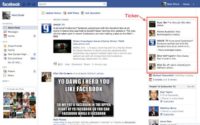
Another privacy concern has to do with employers digging Facebook when they are thinking about hiring you, and what you have up there can have serious impact on whether you get a job or not. They look and see who you are, who you hang out with and what you find amusing. They can look at your entire life in ‘Timeline’, and they might decide you are not the kind of person they are looking for when they start diving into your more private conversations.
And what’s worse, now we find out some employers are asking for Facebook passwords before hiring people, though it is a violation of Facebook policy which you agreed to by signing up. And most people did give their password as they needed the job. Even those horrible Facebook privacy settings and complicated controls are being taken from us when we are asked about our password. All the work done adjusting privacy settings gets pointless. Where the hell is this world going to?
And what if you decide to quit Facebook? What if you are sick and tired of its intrusiveness?
I had left Facebook more than once but got messages from friends that said: “We miss you, please come back”, or they just say: “Hey, somebody commented on your thing”, and if you go over there to comment back – boom! Facebook says: “Welcome back”, and everything that you had there is still there, even though you closed your account.
 So if you do decide that Facebook, as far as privacy goes, is a little too much for you, delete everything you can, change personal data so that it is no longer relevant, and then leave Facebook, so information could not be data-mined later on, because even when you are no longer there, your information is still being stored.
So if you do decide that Facebook, as far as privacy goes, is a little too much for you, delete everything you can, change personal data so that it is no longer relevant, and then leave Facebook, so information could not be data-mined later on, because even when you are no longer there, your information is still being stored.
It is funny how many people have these Facebook privacy concerns and yet decide to stay, saying: “That is not a big deal”. It might be, and it might get worse in the future.
Facebook privacy issues… What do you think?



